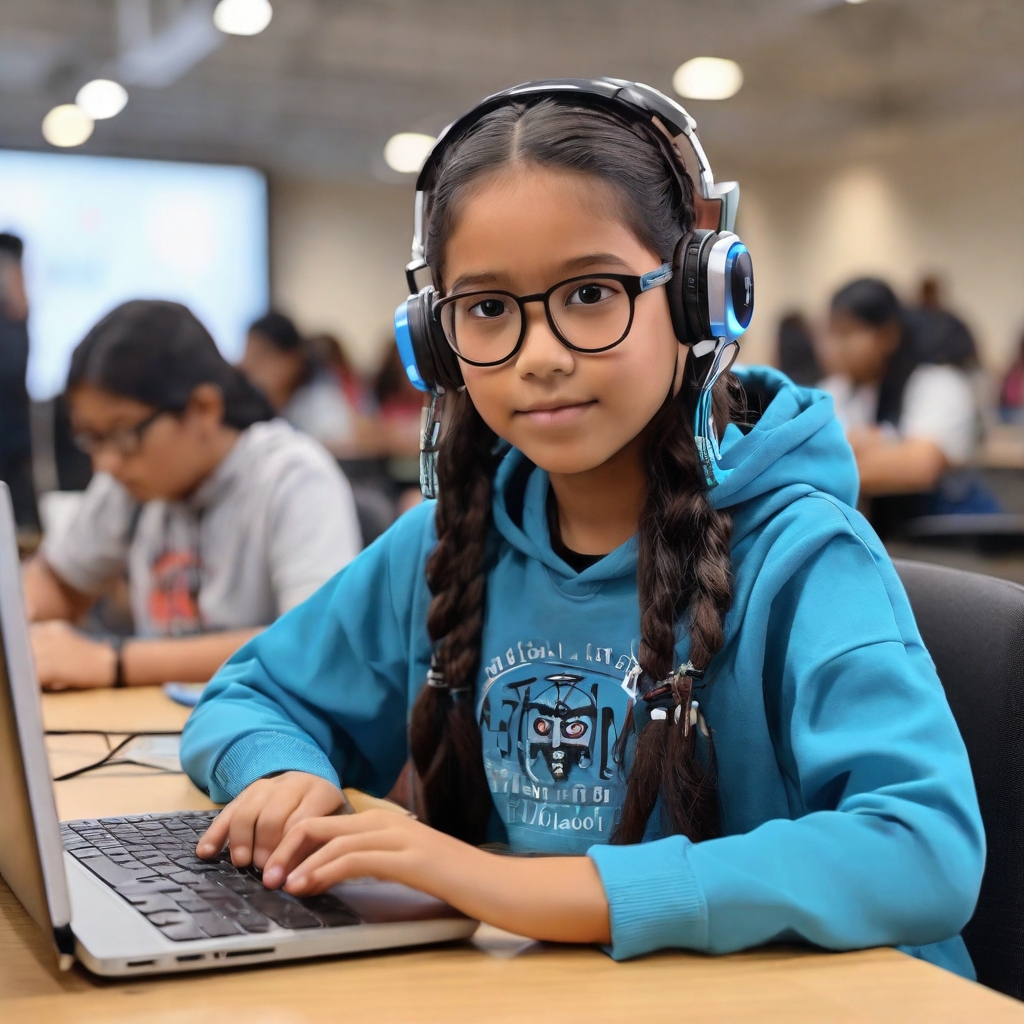In the summer of 2021, Niesha Marshall, a 13-year-old from the Rosebud Reservation, embarked on a transformative journey at the Lakota AI Code Camp. The three-week program, situated at Black Hills State University, aimed to introduce Lakota students with minimal coding experience to Python, data science, machine learning, and app development. Niesha’s initial skepticism about the world of AI rapidly shifted as she successfully created an AI-powered purple go-kart in a matter of weeks.
A paradigm shift in learning AI
Before the camp, Niesha’s understanding of coding was limited to stereotypical portrayals in movies. However, the immersive experience at the Lakota AI Code Camp shattered preconceptions, revealing the potential for Indigenous youth to engage with and excel in cutting-edge technologies. The camp not only serves as an entry point into computer science but also addresses the pressing need for Indigenous representation in the field.
The founders of the Lakota AI Code Camp, Mason Grimshaw, and Michael Running Wolf, recognized a scarcity of Indigenous AI and machine learning experts. With the alarming disappearance of Indigenous languages—a consequence of assimilation policies and racism—Grimshaw and Running Wolf envisioned AI as a tool for cultural revitalization. Their objective is to train a generation capable of digitally safeguarding Indigenous culture, preserving endangered languages, and recording traditional knowledge.
Bridging the digital divide: Challenges and triumphs
Despite facing challenges like unreliable internet in rural South Dakota and technical issues, the camp proved highly successful. A lack of internet access on tribal reservations and a shortage of Indigenous computer science faculty highlighted the necessity for initiatives like the Lakota AI Code Camp. The founders, undeterred by skepticism, witnessed students surpass expectations, even exhausting the provided content within the first three days.
Recognizing the underrepresentation of Native Americans in computer science, Grimshaw and Running Wolf decided to target high school students. By introducing coding to young minds early on, they aimed to create a pathway for indigenous talent in AI and machine learning. The camp’s success challenged conventional beliefs about teaching Python to 13-year-olds with no prior coding experience, showcasing the potential of determined and motivated students.
Culturally relevant learning
The camp’s emphasis on cultural relevance proved crucial. Native students, often discouraged by the lack of representation, found inspiration in instructors who shared their background. Encouragement and understanding became invaluable tools, helping students overcome self-doubt and reinforcing a sense of community. For Niesha, the camp felt like family, fostering an environment where she could freely express her native humor and share experiences.
With plans to replicate the Lakota AI Code Camp in California and discussions for a Seneca youth coding camp in upstate New York, the founders aim to expand their impact. Recognizing the need for a tribe-specific curriculum, the challenge lies in finding local teachers with the cultural knowledge required for effective learning. The final projects of the students, including an app recognizing sacred Lakota plants, exemplify the potential of merging coding skills with cultural preservation.
Nurturing indigenous talent
As Niesha contemplates a future in AI, potentially in video game design, she exemplifies the camp’s lasting influence. By breaking stereotypes, she encourages her peers to embrace coding as a pathway to meaningful careers and cultural revitalization. The founders, Grimshaw and Running Wolf, are working on a program to train local STEM teachers and community leaders, ensuring the sustainability and expansion of their initiative.





